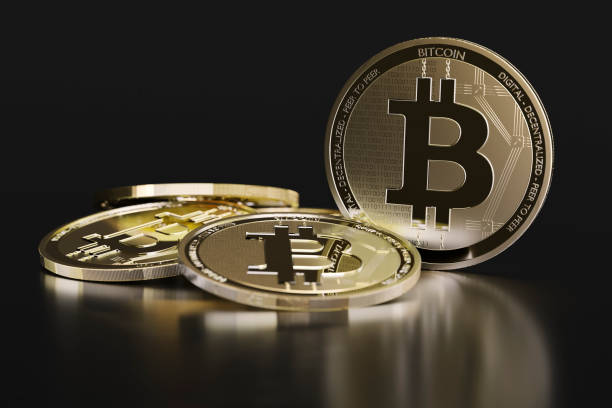Social Emotional Learning (SEL) Market Worth $1.725 Billion, and Growing Fast
The market for K-12 instructional materials in social-emotional learning (SEL) is relatively small—an estimated $1.725 billion for the 2021-2022 school year—but represents one of the fastest-growing areas within the K-12 space due to a combination of factors.

They include, among others, increasing need; growing acceptance on the part of teachers, parents, and students; encouragement on the part of federal, state, and district departments of education; research showing SEL’s effectiveness along a variety of measurements; and strong funding that can be used for SEL expenditures. The Collaborative for Academic, Social, and Emotional Learning (CASEL), widely recognized as a leading organization in social-emotional learning for K-12 education, has identified five core competencies with which most schools and districts with SEL strategies align. They are: self-awareness, self-management, social awareness, relationship skills, and responsible decision-making. Some of the lessons that are included in a SEL program include how to show empathy to others, identify and manage emotions, resolve conflicts, enter into healthy relationships, achieve goals, be resilient, take responsibility, and recognize and make responsible decisions, among many other so-called “soft skills.” SEL is part of a whole-child approach and not just for students who are facing a crisis. It is most effective if it finds its way into all activities in the school day, rather than being promoted once a day or a few times a week in the form of standalone lessons, and when there is a connection to real-world situations. It is important to note that while the five SEL competencies remain consistent from district to district, school to school, grade to grade, and individual to individual, the way educators go about promoting social-emotional health are as varied as the social-emotional needs of the students. Specifics depend on the make-up of the student body, the location of the district, the age of the students, needs of the individuals in the population, and many other factors. Many studies have shown a correlation between strong social-emotional skills—where students can recognize and manage their own social-emotional health and adjust their behaviors accordingly—and behavior and mental health. But there are also important correlations with success in college and career, civic engagement, relationships, academics, and more. Some critics of social-emotional learning believe that introducing SEL into schools takes away time that should be spent on academic subjects. But social-emotional learning programs have been demonstrated to have a positive impact on academic progress and performance. Taking the time to work on social-emotional skills helps students concentrate and remain engaged in learning, as well as have an easier time with key academic skills such as collaboration and communication. It gives them the confidence to learn. A study by professors at Loyola University Chicago and the University of Illinois at Chicago, with CASEL, published in 2011 in Child Development and still frequently cited, found that implementing SEL in PreK through grade 12 led to 11% gains in academic achievement. Other analyses and meta-analyses over the years have come up with similar results. Social-emotional skills differ from college and career ready skills, but there is significant overlap and the two mirror each other in some ways. For example, both focus on relationship skills as one component. Surveys have shown that employers value emotional intelligence highly among other attributes when considering a new hire: Having stronger SEL skills also helps students navigate the college admissions process, something that was evident in 2021 and 2022 as students deal with the stress of applying to college while facing pandemic-related anxieties at the same time. Social-emotional skills are not the same as mental health, but the two are related. SEL promotes better mental wellness and is often part of a continuum or framework along with prevention, intervention, and treatment that make up a broader mental health ecosystem. SEL teaches proactive measures that can help prevent mental health or serious behavioral issues down the road. Students with strong social-emotional skills see a reduction in serious mental-health issues, such as severe anxiety, depression, and suicide. Strong SEL skills can also play an integral role in equity and inclusion, both in school and beyond. Fostering equity and inclusion requires the ability to see another’s perspective, to listen and feel empathy, to identify and embrace similarities and differences, to build relationships, kindness, and other skills—all of which are part of social-emotional learning. In fact, since 2020, schools have increased SEL in the classroom to help students cope with the pandemic and the George Floyd killing and its aftermath, including heavy discussions of equity, diversity, and inclusion at school and in society. Research has also shown that SEL results in increased voter turnout and better outcomes on other measures of civic engagement. This report is an essential tool for publishing executives, M&A advisors, market analysts, and industry consultants who need to understand the larger trends and necessary business strategies when considering the social and emotional instructional market. Since 1989, Simba Information has been widely recognized as the leading authority for market intelligence on the education and professional publishing industries. Our experts give you critical analysis derived from years of experience in the field and quality data of the kind only available to industry insiders. The market for K-12 instructional materials in social-emotional learning (SEL) is relatively small—an estimated $1.725 billion for the 2021-2022 school year—but represents one of the fastest-growing areas within the K-12 space due to a combination of factors.
The market for K-12 instructional materials in social-emotional learning (SEL) is relatively small—an estimated $1.725 billion for the 2021-2022 school year—but represents one of the fastest-growing areas within the K-12 space due to a combination of factors.What Is SEL?
Academic Benefits of SEL
College and Career Readiness
Other Benefits of SEL: From Mental Health to Equity
Where to Learn More
 This article draws on information from Simba Information's new report Social and Emotional Learning: 2022-2023, which provides detailed, up-to-date information on social emotional learning market drivers, market sizing, trends and opportunities, and market forecasts.
This article draws on information from Simba Information's new report Social and Emotional Learning: 2022-2023, which provides detailed, up-to-date information on social emotional learning market drivers, market sizing, trends and opportunities, and market forecasts. About Simba Information

 MikeTyes
MikeTyes 










![17 PowerPoint Presentation Tips to Make More Creative Slideshows [+ Templates]](https://blog.hubspot.com/hubfs/best-powerpoint-presentation-tips.jpeg#keepProtocol)



















